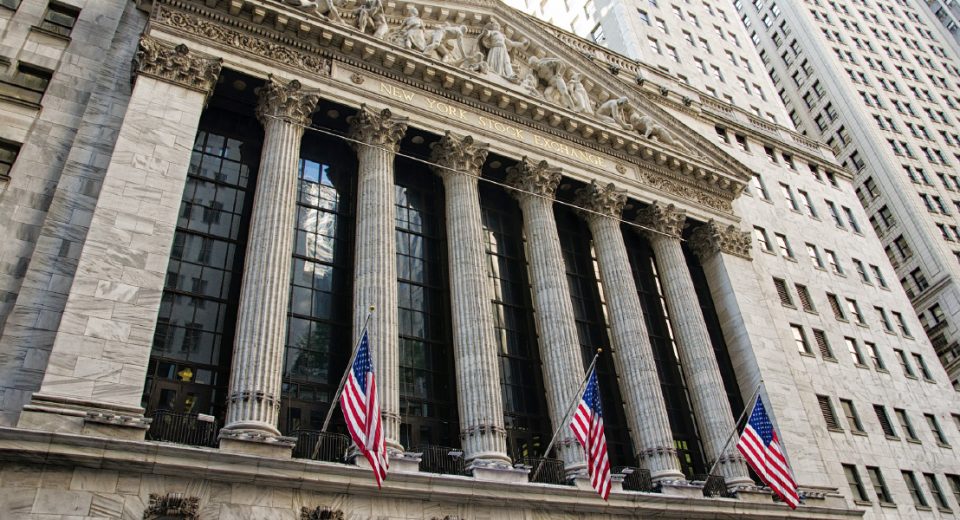How Does a Central Bank Rate Hike Impact Different Markets

The primary responsibility of the central bank of any country is to oversee the monetary system. This is managed by altering the monetary policy, with the aim to keep inflation in check. High inflation rates have a dampening effect on the purchasing power of consumers, causing a direct hit to the bottom-line of companies, which in turn can cause the economy to stutter and stumble. This doesn’t mean that the lowest inflation rates are the most desirable. Very low inflation rates signal low demand for goods, causing depressed wages and a slowdown in the economy.
Why Do Central Banks Cut or Hike Interest Rates?
The interest rate is the single most important monetary policy tool used by central banks. This is because a change in the central bank’s interest rate has an immediate and powerful impact on the supply of money and, therefore, inflation in the economy.
This benchmark interest rate is the rate at which commercial banks can borrow from the central bank. This impacts the interest rates that banks charge on business loans or pay customers on their deposits. The ripple effect of this flows across the economy and through the financial markets. Before we look at the impact on the financial markets, let’s understand how a rate change impacts the economy.
How Does a Rate Cut Impact the Economy?
When economic growth in a country decelerates, its central bank cuts interest rates to reinvigorate economic activity. When a central bank reduces interest rates, businesses experience a decline in borrowing costs. This prompts them to take more loans and hire more people to expand production and invest in innovation. On the other hand, low interest rates discourage consumers from saving, boosting customer spend. Low rates also make it less expensive for customers to access credit, supporting demand for big-ticket purchases. All these factors come together to propel economic growth.
How Does a Rate Hike Impact the Economy?
When an economy booms, there is excess liquidity in the market. This results in high inflation and asset bubbles. Central banks use interest rate hikes to control this situation, as this is the quickest way of draining the excess liquidity. When interest rates are raised, it prompts people to save and invest money. Higher interest rates also make it more expensive to access credit for making purchases. Both these factors impact demand, which has a dampening effect on inflation.
Remember
Interest rates and inflation have an inverse relationship. This means interest rate hikes result in lowering inflation.
Central Bank Rates
The benchmark interest rates of central banks around the world are known by different names.
| Country / Region | Name of Central Bank | Benchmark Interest Rate |
| USA | Federal Reserve (Fed) | Fed funds rate or federal funds rate |
| EU | European Central Bank (ECB) | Refi rate or refinancing rate |
| UK | Bank of England (BoE) | Base rate |
| Japan | Bank of Japan (BoJ) | Overnight call rate |
| China | People’s Bank of China (PBoC) | Loan prime rate (LPR) |
| India | Reserve Bank of India (RBI) | Repo rate (repo being the short form of repurchasing option) |
Rate Hikes in 2022
Central banks across the world aggressively hiked their benchmark interest rates through 2022. This was to ease soaring inflation rates. A question that may come to your mind is why the world faced skyrocketing inflation in 2022, despite the previous couple of years being impacted by the pandemic.
Did you know
The US recorded an annual inflation rate of 9.1% in June 2022, the highest in 40 years. The EU’s annual inflation reached a record high of 10.9% in September 2022.
While a booming economy does trigger high inflation, this is not the only reason. To support people who could not work during the pandemic, the US doled out large sums of cash to every household. An increase in the supply of money results in high demand for goods, triggering inflation. Other factors contributing to inflation were supply chain disruptions due to the pandemic and high energy prices due to the Russia-Ukraine conflict.
Interestingly, soaring inflation in the US tricked down to every economy in the world. This is because of the impact of the Fed’s rate hikes on the global financial markets. To understand this, let’s first look at the currency market.
Impact of Rate Hikes on the Global Financial Markets
Forex Trading
Interest rates have a direct impact on the currency market. When the central bank raises its benchmark interest rate, it attracts foreign investments into the country. This raises demand for the currency of the country and increases its price versus other currencies.
Tip
If you’re looking at trading forex, it’s a good idea to keep an eye on interest rate announcements by central banks. Traders often buy a currency in anticipation of a central bank rate hike or if a rate hike announcement is higher than was anticipated.
An interest rates hike by the Fed causes the US dollar to appreciate verus other currencies. Since trade between countries takes place in the US dollar and all financial markets quote assets in this currency, any increase in the greenback affects all other countries, forcing them to raise interest rates to prevent too much devaluation of their currencies.
Tip
Traders often gain exposure via contracts for difference (CFDs) rather than directly buying a currency. CFDs not only allow you to speculate on price movements in either direction, but also make it easier to open multiple positions to hedge risks.
Stock Markets
Stock markets tend to respond negatively to central bank rate hikes, as capital becomes more expensive, spelling a direct hit to the bottom-line. This is particularly the case for growth stocks, as most of these are of capital-intensive companies.
Defensive stocks, such as those of healthcare, essentials, and utilities gain trader interest, as these companies can secure demand even during tougher periods for the economy.
Tip
A popular way to gain exposure to the stock market is by trading indices. Trading stock indices provide easy diversification across sectors, without owning the shares of the companies.
Trading Commodities
Historically, commodities have shared an inverse relationship with interest rates. An interest rate hike impacts the purchasing power of businesses and reduces the demand for raw materials, resulting in a decline in commodity prices. A hike by the Fed supports the US dollar, which makes commodities more expensive for holders of other currencies, thereby reducing the demand for commodities.
Tip
For those trading commodities, an interest rate hike by their country’s central bank will cause their domestic currency to appreciate and the price of commodities to decline.
Trading Gold and Other Precious Metals
Just like commodities, gold prices also share an inverse relationship with interest rates. When your domestic currency appreciates, it makes gold cheaper. Moreover, gold is considered a store of value and competes with currencies. So, interest rate hikes make currencies more attractive than trading gold.
Did you know
Gold prices hit a two-year low after the Fed’s fourth consecutive interest rate hike in mid-September 2022.
Tip
The US dollar competes with gold trading, as both are seen as safe-haven options. So, when the Fed raises interest rates and the US dollar appreciates, the price of often gold declines.
Trading Cryptocurrencies
Cryptos are considered a hedge against inflation. However, interest rate hikes encourage traders to choose fiat currencies over virtual currencies, adversely impacting trading in cryptocurrencies.
Key takeaways
- Central banks adjust interest rates to manage money supply, with the aim of maintaining economic stability
- Interest rate hikes have a direct relationship with the currency of the country
- Interest rate hikes share an inverse relationship with stock indices, commodities, precious metals, and cryptocurrencies
Disclaimer:
All data, information and materials are published and provided “as is” solely for informational purposes only, and is not intended nor should be considered, in any way, as investment advice, recommendations, and/or suggestions for performing any actions with financial instruments. The information and opinions presented do not take into account any particular individual’s investment objectives, financial situation or needs, and hence does not constitute as an advice or a recommendation with respect to any investment product. All investors should seek advice from certified financial advisors based on their unique situation before making any investment decisions in accordance to their personal risk appetite. Blackwell Global endeavours to ensure that the information provided is complete and correct, but make no representation as to the actuality, accuracy or completeness of the information. Information, data and opinions may change without notice and Blackwell Global is not obliged to update on the changes. The opinions and views expressed are solely those of the authors and analysts and do not necessarily represent that of Blackwell Global or its management, shareholders, and affiliates. Any projections or views of the market provided may not prove to be accurate. Past performance is not necessarily an indicative of future performance. Blackwell Global assumes no liability for any loss arising directly or indirectly from use of or reliance on such information herein contained. Reproduction of this information, in whole or in part, is not permitted.




